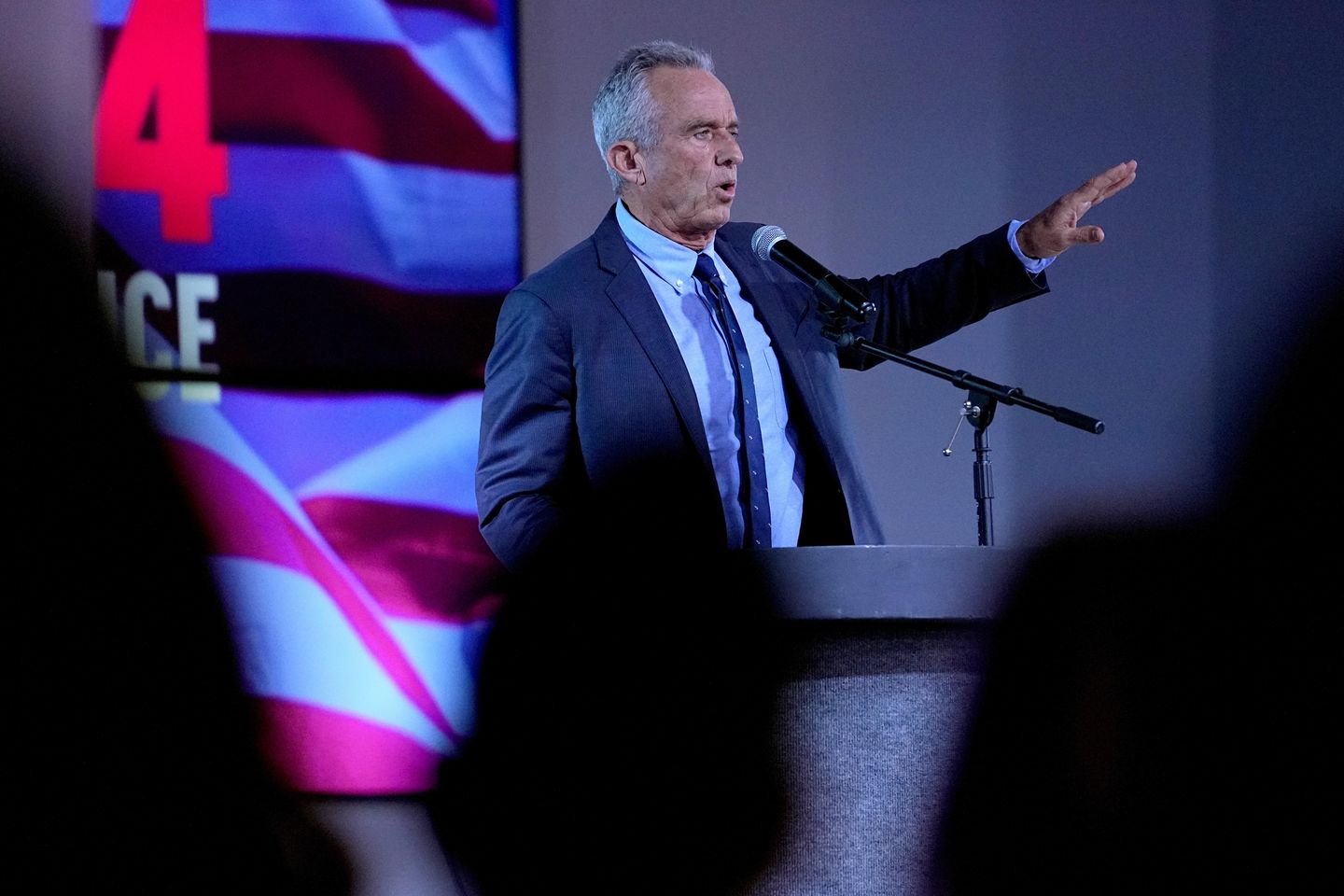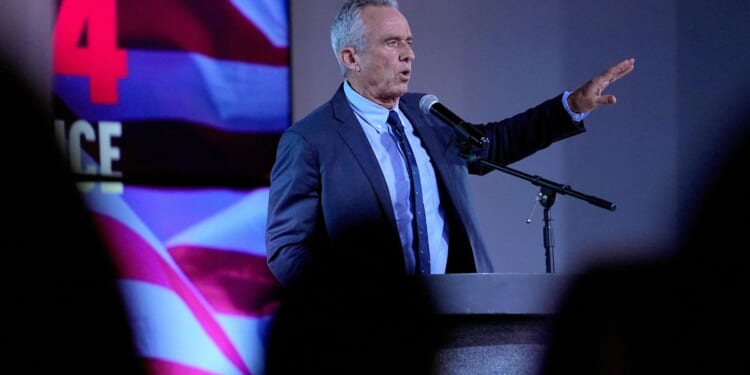
Independent presidential candidate Robert F. Kennedy Jr. is chipping away toward the goal of being on the ballot in states across the country, increasing the chances he will influence the outcome of the White House race.
Mr. Kennedy has cleared the bar in Utah and recently collected the signatures needed to appear on the ballot in New Hampshire.
He has also decided to work smarter, not harder, in half a dozen states — California, Delaware, Hawaii, Mississippi, North Carolina and Texas — where he filed a petition to create a new political party, which is an easier way to get on the ballot in those states than running as an unaffiliated candidate.
“We have the field teams, volunteers, legal teams, paid circulators, supporters, and strategists ready to get the job done,” said Kennedy campaign spokesperson Stefanie Spear. “Mr. Kennedy will be on the ballot in all 50 states and the District of Columbia.”
Mr. Kennedy is not alone.
Cornel West, a prominent Black progressive academic and independent presidential candidate, is making ballot inroads, while No Labels, the group laying the foundation for a bipartisan “unity ticket,” is on the ballot in more than a dozen states.
The Green Party and the Libertarian Party have also secured ballot access in several states, including key battleground states.
The prospect of third-party contenders appearing on the ballot alongside the likely rematch of President Biden and former President Donald Trump has opened up a guessing game about which one would be hurt or helped more by spoilers.
The threat of a third-party spoiler is heightened by the razor-thin margins in key battleground states that decided the last two White House races.
Mr. Biden defeated Mr. Trump in 2020 by a little over 40,000 votes combined in Arizona, Georgia and Wisconsin.
Four years earlier, Mr. Trump defeated Hillary Clinton by less than 80,000 votes combined in Michigan, Pennsylvania and Wisconsin.
Disgruntled Democrats laid some of the blame for the 2016 loss on Ms. Stein, the Green Party candidate who received 51,000 votes in Michigan and 31,000 votes in Wisconsin, which likely helped Mr. Trump by pulling far-left voters away from Mrs. Clinton.
Ms. Stein is again running as a Green Party candidate, reviving concerns that she could hurt Mr. Biden. Mr. Kennedy, meanwhile, could siphon support from both Mr. Trump and Mr. Biden, given his Democratic pedigree and his embrace of some right-wing positions.
“So long as there is a Democratic and Republican nominee running in the election, I can’t imagine any third party candidate winning even a single state,” said Kyle Kondik, of the University of Virginia’s Center for Politics.
“But the dissatisfaction with the likely nominees, Trump and Biden, could create a situation similar to 2016, where at least a mid-single digits percentage of the electorate votes third party,” he said. “That could have a bearing on who wins.”
While ballot access requirements are not very onerous in most states, it still can be challenging for independent candidates who are starting their campaigns and ballot access operations from scratch.
It is a different story for Libertarian, Green and other minor party candidates because those groups already have some level of organization and ballot access in many states.
The Green Party’s website shows it is on the ballot in 19 states and the District of Columbia, including the battlegrounds of Arizona, Michigan and Wisconsin.
The party is also fighting ballot access legal battles in four states and making progress in three other states, including Georgia, according to their website.
The Libertarian Party is on the ballot in 35 states. The list includes Arizona, Michigan and Wisconsin.
Mr. Kennedy, who ran as a Democrat before switching to run as an independent, has yet to rule out hitching his wagon to the Libertarians, a move that would eliminate the lion’s share of his ballot access hurdles.
“That is something we are looking at,” Mr. Kennedy said recently on CNN. “We have a really good relationship with the Libertarian Party.”
The Libertarian Party did not respond to requests for comment.
No Labels, meanwhile, plans to announce whether it will field a presidential ticket after the Super Tuesday nomination contests on March 5.
The bipartisan group has qualified to be on the ballot in 14 states: Alaska, Arizona, Arkansas, Colorado, Florida, Hawaii, Kansas, Maine, Mississippi, Nevada, North Carolina, Oregon, South Dakota and Utah. Plus, they have filed for ballot access or are collecting signatures in 13 more states.
“We are on schedule and on budget and we are well ahead of where Ross Perot was in 1992, who had not even gathered signatures at this point in the cycle,” said Maryanne Martini, a No Labels spokesperson. “If we go forward with a Unity Ticket, we have complete confidence it will be on the ballot in all 50 states and DC.”
Mr. West has made his way onto the ballots in Alaska and Oregon thanks to the support of the newly founded Alaska Aurora Party and the Progressive Party in Oregon.
Edwin DeJesus, a West spokesperson, said the campaign has a 50-state strategy and is in the “early stages of forming the Justice for All Party, currently focusing on North Carolina, Florida and Washington State.”
“This list of states is fluid, guided by our movement’s feedback and active participation,” Mr. DeJesus said. “Our volunteer team is dedicated to this nationwide effort and looks forward to more successes.”












